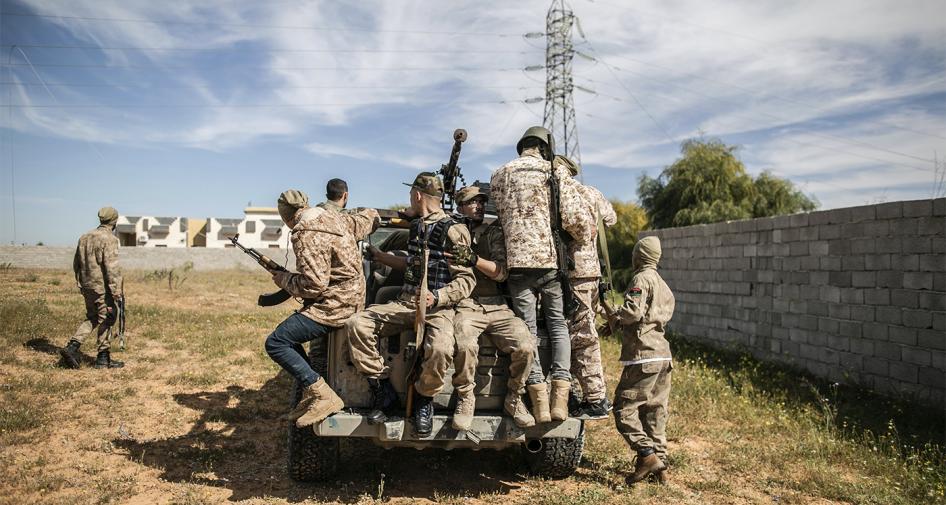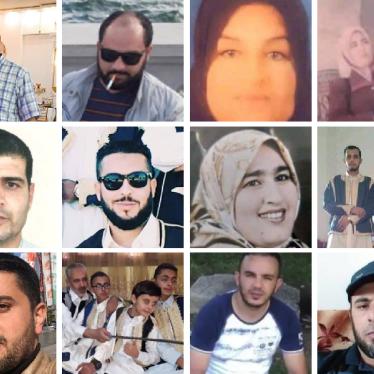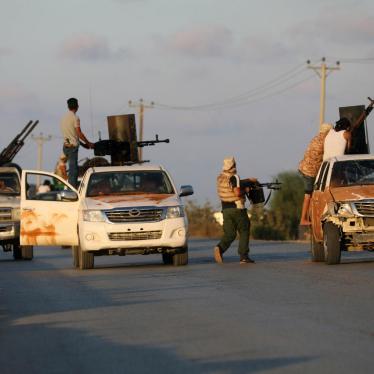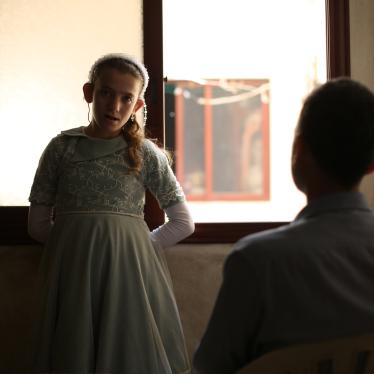(Tunis) – Armed groups that support competing Libyan governments and their international benefactors have been responsible for massive civilian casualties, displacement, and destruction during 2020, Human Rights Watch said today in its World Report 2021 There is an urgent need for a newly established United Nations-mandated Libya fact-finding mission to investigate violations and make its findings public.
Participants in the Libya Political Dialogue Forum (LPDF), which is negotiating a governance framework and future elections, need to ensure that robust accountability measures are a top priority. The roadmap facilitated by the UN in November in Tunis inadequately addresses the devastating human rights and humanitarian toll after 15 months of reckless fighting.
“The failure of the political dialogue forum to come up with a roadmap that straight up commits to justice and accountability for serious crimes is symptomatic of appeasement politics,” said Hanan Salah, senior Libya researcher at Human Right Watch. “The only thing that will end the vicious cycle of serious rights violations is when senior commanders and officials who order or condone serious abuses face consequences for their actions.”
In the 761-page World Report 2021, its 31st edition, Human Rights Watch reviews human rights practices in more than 100 countries. In his introductory essay, Executive Director Kenneth Roth argues that the incoming United States administration should embed respect for human rights in its domestic and foreign policy in a way that is more likely to survive future US administrations that might be less committed to human rights. Roth emphasizes that even as the Trump administration mostly abandoned the protection of human rights, other governments stepped forward to champion rights. The Biden administration should seek to join, not supplant, this new collective effort.
The conflict that raged from April 2019 to June 2020 resulted in scores of civilian casualties and extensive destruction of critical structures and internally displaced tens of thousands of people. Conflict parties, including Turkey, which supports the Government of National Accord (GNA), and Russia, the United Arab Emirates, and Egypt, which support the armed group known as Libyan Arab Armed Forces (LAAF) under Khalifa Hiftar, repeatedly violated a UN Security Council arms embargo. They supplied arms and ammunition and supported local groups with drone and air strikes and foreign fighters.
Human Rights Watch found extensive use of internationally prohibited anti-personnel landmines and booby traps, and some use of cluster bombs by the LAAF and affiliated forces. Human Rights Watch also documented unlawful air and drone strikes by LAAF affiliates that killed civilians and documented summary executions and desecration of bodies by LAAF-affiliated forces.
GNA authorities said they found at least 120 bodies in 27 mass grave sites in Tarhouna, southeast of Tripoli, which had been under the control of Al-Kani militia, the LAAF’s main ally in western Libya, in addition to dozens of bodies in other locations in the southern suburbs of Tripoli.
Hanan al-Barassi, an outspoken critic of violations by armed groups in eastern Libya, was shot dead in Benghazi by unidentified masked gunmen on November 10. She had frequently appeared live on Facebook alleging widespread corruption among members of eastern Libya armed groups and accused them assault and rape.
Migrants and asylum seekers face inhumane conditions in detention facilities run by the GNA’s Interior Ministry and by smugglers and traffickers. They face forced labor, beatings, and sexual assault.
A UN fact-finding mission on Libya established in June has the mandate to investigate serious violations in Libya since 2016. The International Criminal Court has a mandate to investigate war crimes, crimes against humanity, and genocide in Libya since 2011.
Libya: Road to Peace Can’t Bypass Justice
Calamitous Year for Human Rights
Your tax deductible gift can help stop human rights violations and save lives around the world.
Region / Country
Most Viewed
-
September 27, 2014
Guinea: 5 Years On, No Justice for Massacre
-
November 25, 2019
A Dirty Investment

-
October 29, 2020
“I Sleep in My Own Deathbed”

-
April 17, 2024
West Bank: Israel Responsible for Rising Settler Violence

-
April 27, 2021
A Threshold Crossed





